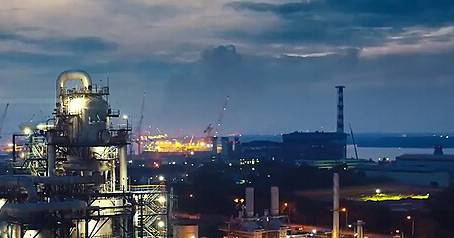Aug . 15, 2024 14:42 Back to list
Exploring the Benefits and Applications of 2 Inch HDPE Pipe for Various Industries and Projects
Understanding 2 Inch HDPE Pipe Applications, Benefits, and Specifications
High-Density Polyethylene (HDPE) pipe has become a popular choice in various industries due to its exceptional properties, making it superior in many applications compared to traditional materials like metal or PVC. Among different sizes of HDPE pipes, the 2-inch HDPE pipe has garnered significant attention. This article explores its applications, benefits, and specifications.
What is HDPE?
HDPE is a thermoplastic polymer produced from petroleum. It is known for its high strength-to-density ratio, which allows it to endure high pressures and resist chemical exposure. HDPE's versatility makes it suitable for a myriad of applications, including water distribution, sewage systems, agricultural irrigation, and industrial processes.
Applications of 2 Inch HDPE Pipe
The 2-inch HDPE pipe is commonly used in various applications
1. Water Supply Systems This pipe is extensively utilized in municipal water supply systems for transporting potable water. Its resistance to corrosion and ability to maintain water quality make it an ideal choice for drinking water applications.
2. Irrigation Agriculture heavily relies on effective irrigation systems, and 2-inch HDPE pipes are used widely to facilitate drip and sprinkler irrigation. They ensure efficient water delivery to crops while conserving water resources.
3. Sewage and Drainage The durability and flexibility of HDPE allow it to be utilized in sewer systems, stormwater drainage, and waste management systems. The 2-inch pipes can conform to ground movements, reducing the risk of leaks and environmental contamination.
4. Industrial Applications Industries often require pipelines for transporting chemicals, fuels, or other substances. The chemical resistance of HDPE makes it suitable for industrial applications where conventional materials may degrade over time.
5. Telecommunications and Electrical HDPE pipes are also used as conduits for telecommunications and electrical wiring, protecting sensitive cables from environmental factors.
Benefits of 2 Inch HDPE Pipe
The use of 2-inch HDPE pipes offers numerous advantages
2 inch hdpe pipe

- Durability HDPE pipes can withstand harsh environmental conditions, including extreme temperatures and corrosive materials. This longevity translates to lower maintenance and replacement costs.
- Lightweight and Flexible HDPE is significantly lighter than metal pipes, facilitating easy handling and installation. Its flexibility allows for bending around obstacles without the need for additional fittings.
- Cost-Effective While the initial cost of HDPE may vary, its long lifespan and low maintenance needs often result in reduced overall expenditures. Additionally, the installation process can be quicker and less labor-intensive.
- Leak-Free Joints HDPE pipes can be fused together using heat, creating strong, leak-free joints that enhance the reliability of the system and reduce the risk of water loss.
- Environmental Resistance HDPE is resistant to chemicals, UV rays, and microorganisms, ensuring that the infrastructure remains intact and functional regardless of the environment.
Specifications of 2 Inch HDPE Pipe
When selecting 2-inch HDPE pipes, it is essential to consider specifications such as
- Pressure Ratings HDPE pipes come in different pressure ratings (typically SDR-11, SDR-17). Understanding the intended application will help in choosing the appropriate pressure classification.
- Dimensions The outer diameter of a 2-inch HDPE pipe is approximately 2.375 inches, while the inner diameter will vary based on wall thickness.
- Standards and Certification Ensure that the HDPE pipes comply with industry standards such as ASTM, AWWA, or ISO for quality assurance and reliability.
Conclusion
The 2-inch HDPE pipe is an outstanding choice for various applications due to its durability, flexibility, and cost-effectiveness. Whether for water supply, irrigation, sewage, or industrial uses, this versatile pipe's properties make it a superior option compared to traditional materials. With its increasing adoption across industries, HDPE continues to set the standard for efficient and environmentally friendly piping solutions.
-
PVC Grey Sheet for Extraction: Chemical Resistant & Durable
NewsAug.19,2025
-
Durable PVC Pipe Fittings for Plumbing & Irrigation Needs
NewsAug.18,2025
-
HDPE Steel Belt Reinforced Spiral Corrugated Pipe | High Strength
NewsAug.17,2025
-
HDPE Pipe Fittings: Durable, Leak-Proof Solutions
NewsAug.16,2025
-
Premium CPVC Sheet: High-Temp & Chemical Resistant Solutions
NewsAug.15,2025
-
Durable PPR Pipe for Hot & Cold Water Systems - Easy Install
NewsAug.14,2025

